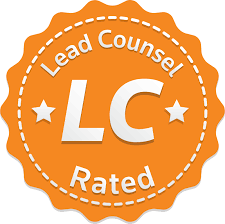Child Custody
Determining child custody arrangements
can be a trying experience for all parties involved. The child custody attorneys at Bergman & Yiangou
are dedicated to helping parents negotiate a suitable custodial arrangement. Our attorneys have extensive legal knowledge of Ohio
child custody laws, as well as the experience to obtain a custody arrangement that will be in the best interest of the child.
What is child custody?
The Ohio Revised Code defines child custody as the allocation of parental rights and responsibilities in the event of a divorce or dissolution. This phrase establishes who has custody and control of a parties’ child or children. Child custody can be determined by the parents of the child or by the courts, should the parents not be able to reach an agreement as to the custody arrangement of the child. The courts will analyze the totality of the circumstances and designate one parent as the custodial parent or residential parent of the child. The custodial parent will have legal custody of the child and will also be the parent who makes decisions which will affect the child.
What determines child custody?
Child custody can be determined by the parents of the child. Typically, parents will develop a parenting plan outlining a parenting arrangement. This parenting plan will then be submitted to the courts for review and approval. If the court finds the parenting plan to be in the best interest of the child, the court will approve it. However, if the court deems the parenting plan is not in the best interest of the child, or if the parents cannot agree to any aspect of the parenting plan, the court will make a determination of child custody based on several factors. These factors will take into account the best interest of the child, and include:
What types of child custody exist?
Child custody is divided into four basic types: physical custody, legal custody, sole custody, and joint custody (shared parenting). Physical custody is defined as the right of a parent to have a child live with him or her. If one parent is awarded physical custody of the child, the other parent will have visitation rights to see the child. Legal custody is defined as having the right and obligation to make decisions regarding a child’s welfare, including decisions regarding schooling, religion, and medical care. Physical and legal custody of a child can be assigned to just one parent or to both parents. Sole custody means one parent is designated as both the residential (physical) parent and legal custodian of the child. This parent has the primary parental rights and responsibilities for the care of the child and is also responsible for the decisions regarding the child’s welfare. The other parent still has certain custody rights and responsibilities pertaining to the care of the child, which include financial responsibilities and the right to have continuing contact with the child. The courts can also award joint (or shared) custody to both parents. Both parents will share the decision-making responsibilities and physical control or custody of the child. Parents who negotiate a shared parenting plan must include a schedule of times each parent will have possession of their child.
What happens if I need to modify child custody?
A motion must be filed with the courts to modify child custody. In order to successfully modify a previous custody arrangement, the moving party must show there has been a substantial change in circumstances that requires the modification. The modification must also show that the changes sought are in the best interest of the child.
Speak with a child custody attorney at Bergman & Yiangou today. We have the experience and legal expertise to help you establish the best child custody arrangement for both you and your children. Call 614-279-8276 for your free consultation.




